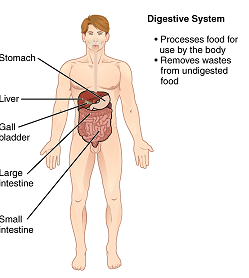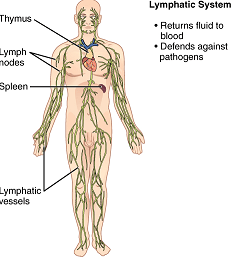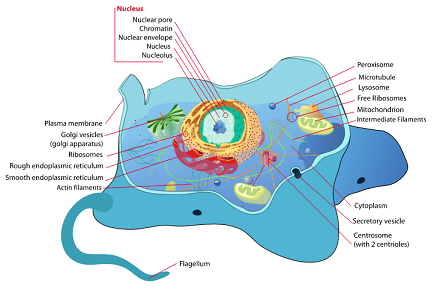Difference BetweenOrgan and Organelle | Compare the Difference Between Similar Terms
Organ vs Organelle
In biological systems, all the organisms are made by physiological systems, which are part of a hierarchy of levels of organization. These levels of organization of biological system include organelles, cells, tissues, organs, and organ system. Each level has its unique morphology and structure and represents different developmental stages of life. Certain organisms like protozoan have the lowest level of organization, which is cell while the advanced organisms like vertebrates have the highest level, which is the organ system.
Organ
An organ is defined as a part of the body, composed of several tissues, which perform a definite role or roles. It is considered as the highest level of organization of a biological system. Each organ is essential to the survival of organisms. Some examples of organs in the human body include heart, stomach, liver, brain, kidney etc.
A series of organs that function together to perform a life function is collectively called an organ system. An organism is made up of collection of several organ systems. Each organ system has its unique function. For example, the digestive system is an organ system, which is made up of esophagus, stomach, small and large intestines, as well as some accessory organs such as liver, gallbladder. Each organ in the system has a unique function, which ultimately contributes to the overall function of the organ system.
Image source: Connexions, http://cnx.org/, 2013
Organelle
The simplest and basic level of organization is organelle, which is defined as the subcomponent of cell. Organelles are located inside the cells and specialized to act together to perform a definite function. They have a great deal of functional variations. The organelles of unicellular organisms such as protozoans are functionally equivalent to the organs or tissues of multicellular animals (metazoans). Some examples of organelles include cell wall, centrioles, chloroplast, mitochondria, nucleus etc.
Image source: LadyofHats (Mariana Ruiz), wikibooks
What is the difference between Organ and Organelle?
• Organ is the highest level of organization, whereas organelle is the lowest level of organization in a biological system.
• Organs collectively form organ systems, whereas several organelles contribute to form a cell.
• Organelles of protozoa are functionally equivalent to organs (or tissues) in metazoa.
• Organs are located inside the organ systems, whereas organelles are located inside the cells.
• Examples of organ include heart, liver, bladder, kidney, brain etc, whereas examples of organelles include chloroplast, mitochondria, nucleus etc.
Read more:
1. Difference Between Tissue and Cell
2. Difference Between Tissue and Organ
3. Difference Between Gland and Organ
ncG1vNJzZmivp6x7pbXFn5yrnZ6YsqOx07CcnqZemLyue8OinZ%2Bdopq7pLGMm5ytr5Wau2aPkV54aaeinK6vecCnm2anopyur7HLpZxo


